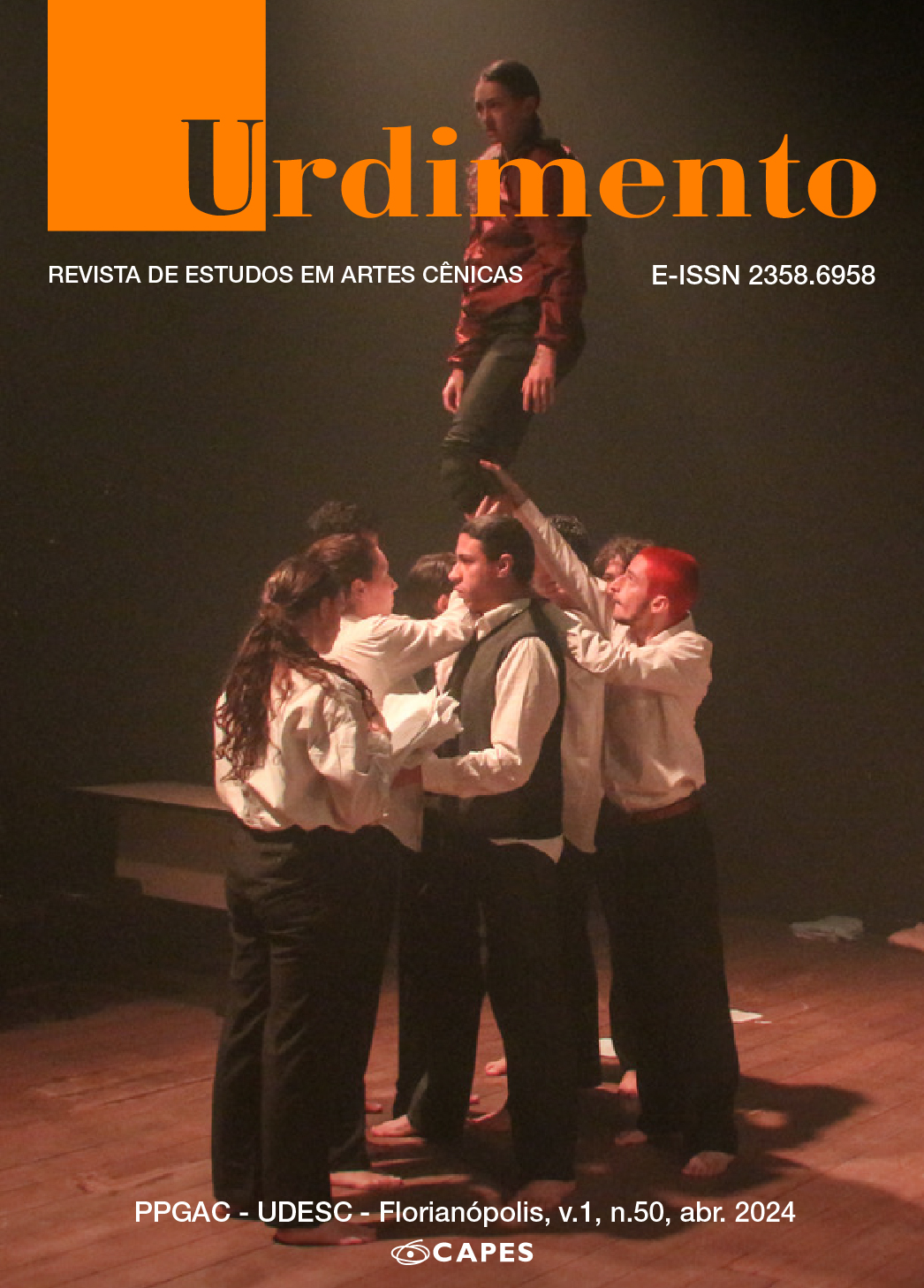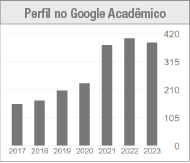Pajubá: Aesthetic Justice and Intangible Heritage
DOI:
https://doi.org/10.5965/1414573101502024e0104Keywords:
epistemic justice, intangible heritage, PajubaAbstract
The text positions Pajubá, a sociolect of Latin American trans resistance, within the framework of processes of cognitive recognition and epistemic justice. Taking into account the work carried out by the Research Group 'Performance Pedagogy: visualities of the scene and critical technologies of the body” (CNPq/UFSB) in order to inventory Pajubá, we analyzed how UNESCO's precepts and processes for the preservation of intangible heritage apply in this case. Using the notions of testimonial injustice and hermeneutic injustice as key (Fricker, 2023), we evaluate the anti-colonial dimensions of Pajubá as a language formation, viewing it in a journey of aesthetic justice.
Downloads
References
ANZALDÚA, Gloria. Borderlands: La Frontera. San Francisco: Aunt Lute, 1987.
BENJAMIN, Walter. Sobre Arte, Técnica, Linguagem e Política. Trad. Maria Luz Moita, Maria Amélia Cruz e Manuel Alberto. Lisboa: Relógio D'Água, 2012.
BOAL, Augusto. A Estética do Oprimido - reflexões errantes sobre o pensamento do ponto de vista estético e não científico. Rio de Janeiro: Garamond, 2009.
CABALLERO, Ileana Diéguez. Cuerpos Liminales: La performatividad de la búsqueda. Córdoba/Argentina: DocumentA/Escénicas Ediciones, 2021.
CACERES, Imayna. Anti*colonial fantasies. In: CACERES, Imayna. MESQUITA, Sunanda. UTIKAL, Sophie (Org.). Anti*colonial fantasies: decolonial strategies. Vienna: Zaglossus, 2017.
CHIARADIA, Clóvis. Dicionário de palavras brasileiras de origem indígena. São Paulo: Limiar, 2008.
DUCHAMP, Marcel. O ato criador. In: BATTCOCK, Gregory (Org.). A nova arte. São Paulo: Perspectiva, 1986.
FAVARETTO, Celso. O entrelugar da arte contemporânea. In: DESGRANGES, Flávio. SIMÕES, Giuliana (Org.). O ato do espectador: perspectivas artísticas e pedagógicas. São Paulo: Hucitec, 2017.
FRICKER, Miranda. Injustiça Epistêmica: o poder e a ética do conhecimento. São Paulo: EDUSP, 2023.
GADELHA, Kaciano. DeCUlonização e diásporas trans: uma entrevista com Sanni e Pêdra Costa. In: PeriódiCUS — Revista de estudos indisciplinares em gêneros e sexualidades. vol.1, n.7. Salvador: Grupo de Pesquisa CUS, Universidade Federal da Bahia, 2017.
GIELEN, Pascal. TOMME, Niels Van (eds.) Aesthetic Justice: Intersecting Artistic and Moral Perspectives. Amsterdam: Valiz, 2015.
LARROSA, Jorge. La experiencia de la lectura: estudios sobre literatura y formación. México: Fondo de Cultura Económica, 2003.
LEAL, Dodi. Performatividade transgênera: equações poéticas de reconhecimento recíproco na recepção teatral. Série TEATRA. São Paulo: Hucitec, 2021a.
LEAL, Dodi. Fabulações travestis sobre o fim. In: Conceição-Conception. Campinas, p.1-19, v.10, 2021b.
LEAL, Dodi. A arte travesti é a única estética pós-apocalíptica possível? Pedagogias antiCIStêmicas da pandemia. In: Pandemia Crítica, n.094. São Paulo: n-1 edições, 2020.
LEAL, Dodi. ROSA, André. Transgeneridades em performance: desobediências de gênero e anticolonialidades das artes cênicas. In: Revista Brasileira de Estudos da Presença, Porto Alegre, v.10, n.3, pp.1-29, 2020.
PALHA, Amanda. Prefácio. In: Neca + 20 poemetos travessos. Uberlândia: O Sexo da Palavra, 2021.
PRATA, A. Pires. A influência da língua portuguesa sobre o suahíli e quatro línguas de Moçambique. Lisboa: Instituto de Investigação Científica Tropical, 1983.
PRECIADO, Paul. Dysphoria mundi: El sonido del mundo derrumbándose. Barcelona: Anagrama, 2022.
SILVA, Jovanna Baby Cardoso. Bajubá Odara: Resumo histórico do nascimento do movimento de travestis do Brasil. Picos: FONATRANS, 2021.
VERGUEIRO, Viviane. Por inflexões decoloniais de corpos e identidades de gênero inconformes: uma análise autoetnográfica da cisgeneridade como normatividade. Dissertação (Mestrado em Cultura e Sociedade) – Universidade Federal da Bahia, Salvador, 2015.
Published
How to Cite
Issue
Section
License
Copyright (c) 2024 Urdimento: Revista de Estudos em Artes Cênicas

This work is licensed under a Creative Commons Attribution 4.0 International License.
Copyright Statement
The articles published by the magazine are free to use. The copyright is all assigned to the magazine. The articles whose authors are identified represent the expression from the point of view of their authors and not the official position of the journal Urdimento. The author (s) undertakes whenever publishing material relating to the article published in Revista Urdimento mention the said publication as follows: This article was originally published by Urdimento magazine in its volume (put the volume), number (put the number) in the year of (put the year) and can be accessed at:
http://www.revistas.udesc.br/index.php/urdimento
This work is licensed under a Creative Commons Attribution 4.0 International License.




